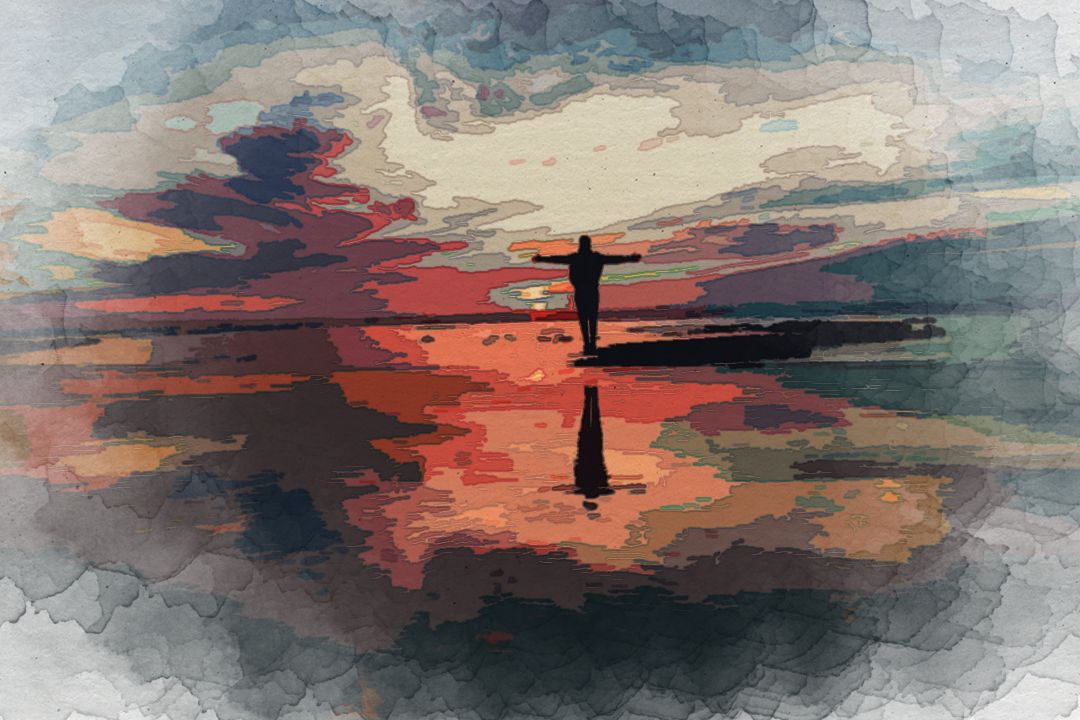And Hide in the Shadows

False Idols and Fictional Fictions
In a secluded valley cradled by towering, mist-shrouded mountains lay the village of Eldoria, a quaint settlement that time seemed to have forgotten. The villagers led simple, uneventful lives governed by age-old traditions and the unyielding grip of superstition. Their existence was a living echo of the ancient wisdom imparted by Plato:
We can easily forgive a child who is afraid of the dark; the real tragedy of life is when men are afraid of the light.
— Plato (c. 424 BC to c. 348 BC)
This profound statement reverberated through the essence of Eldoria. The villagers, entrenched in their ways, had grown fearful not of the physical darkness that enveloped their homes come nightfall but of the symbolic light of change, knowledge, and understanding. With its potential to dispel the shadows of ignorance, this light remained a spectral presence, shunned and misunderstood.
The spiritual and intellectual life of the village was dominated by two opposing factions: the Church of Celestial Light, led by Father Ambrose, and the Philosophers' Guild, under the guidance of Master Philo. The Church, with its stern dogmas and rigid liturgies, cast a long shadow over the hearts and minds of the people. It wielded its version of divine truth like a blade, carving deep divisions within the community. This environment would have found sympathy in the words of Jonathan Swift:
We have just enough religion to make us hate, but not enough to make us love one another.
— Jonathan Swift (1667-1745)
Father Ambrose, with his fire-and-brimstone sermons, preached the sanctity of their ancient ways, fostering a culture of fear and obedience rather than one of love and understanding. His teachings created an invisible barrier, a chasm that separated the people's hearts from one another.
Conversely, the Philosophers' Guild, an assembly of Eldoria's most learned men and women, spent their days engrossed in scholarly debate and exploring the natural world. Yet, their intellectual pursuits often seemed detached from the practical needs and concerns of the villagers. They were the embodiment of David Hume’s critique:
Generally speaking, the errors in religion are dangerous; those in philosophy only ridiculous.
— David Hume (1711-1776)
Master Philo and his followers, for all their wisdom and insight, often appeared to the common folk as mere peddlers of pointless puzzles and inconsequential problems. Their lofty discourses, while intellectually stimulating, did little to bridge the gap between knowledge and wisdom, leaving the villagers lost between two worlds, understanding neither.
Into this divided landscape wandered Gabriel, a traveller whose origins remained as mysterious as his sudden appearance. Unlike the villagers, he was neither burdened by the chains of dogma nor lost in the clouds of abstract thought. He walked with the easy assurance of a man who had faced life in all its complexity and emerged with a simple truth, a sentiment echoed by Henry James:
Be not afraid of life. Believe that life is worth living, and your belief will help create the fact.
— Henry James (1843-1916)
Gabriel’s stories, filled with characters from lands far and wide, experiences vast and varied, began to sow seeds of change within the hearts of Eldoria’s people. His words, woven with threads of hope and resilience, painted a world beyond their fears, where life was not a burden to be endured but a gift to be cherished and explored.
Yet, not all welcomed Gabriel’s message. The Church viewed his tales as heretical threats to their authority, while the Guild dismissed them as simplistic and devoid of philosophical merit. Both factions, entrenched in their ideologies, saw him as a disruptive force, a challenge to the status quo. But Gabriel, understanding the plight of those he sought to inspire, remained undeterred, embodying the resolve of Ezra Pound:
A slave is one who waits for someone to come and free him.
— Ezra Pound (1885-1972)
He recognized that true freedom, the liberation of the mind and spirit, could not be granted by another but had to be achieved through one’s efforts and realizations. Gabriel did not seek disciples or adherents but aimed to awaken the villagers to their potential, to the light within that could dispel the shadows of their fears and prejudices.
The turning point came with the story of Jonas, a narrative that would forever change the course of Eldoria's history. Gabriel’s tale of Jonas, a man swallowed by a whale only to emerge days later with a newfound understanding of life’s mysteries, struck a chord with the villagers. This story transcended the boundaries between truth and myth, embodying the essence of Gabriel García Márquez’s insight:
Fiction was invented the day Jonas arrived home and told his wife that he was three days late because he had been swallowed by a whale.
— Gabriel García Márquez (1927-2014)
Through Jonas’s journey, Gabriel illustrated the transformative power of adversity, the depths of self-discovery, and the universal quest for meaning. His story became a mirror reflecting the villagers' fears and aspirations, challenging them to confront their inner whales, their unspoken fears, and suppressed dreams.
Slowly, as the seasons changed, so too did the hearts and minds of Eldoria’s people. Gabriel's stories kindled a flame of curiosity and courage, illuminating paths previously shrouded in the fog of uncertainty and tradition. The villagers began to question, seek, and dream, breaking the chains of fear that had held them captive for generations.
The impact of this awakening was palpable. The Church, recognizing the shift in the hearts of its flock, began to soften its approach, interpreting its teachings through the lens of love and compassion rather than judgment and fear. Moving by the changing tide, Father Ambrose found a new voice that spoke of forgiveness, understanding, and the shared journey toward the light.
Similarly, the Philosophers' Guild opened its doors and thoughts to the broader community, engaging in dialogues that bridged the gap between theory and practice, between the mind and the heart. Master Philo, inspired by the transformation he witnessed, led his followers in applying their knowledge for the betterment of all, not just the intellectually elite.
Eldoria, once a village divided by darkness, emerged as a beacon of light, a testament to the enduring power of hope, understanding, and the shared human experience. Gabriel’s visit's legacy, embodied in the stories he left behind, continued to inspire generations long after his departure.
In the end, Eldoria’s story became a living testament to the power of unity, the strength of compassion, and the unyielding light of the human spirit, guiding all who seek the dawn beyond the shadows.

Figures of Speech Collection Personified
Our editorial instructions for your contest submission are simple: incorporate the quotes and imagery from the above article into your submission.
What emerges is entirely up to you!
Winners receive $500 per winning entry multiplied by the article's featured quotes. Our largest prize is $8,000 for rewriting the following article;

At Planksip, we believe in changing the way people engage—at least, that's the Idea (ἰδέα). By becoming a member of our thought-provoking community, you'll have the chance to win incredible prizes and access our extensive network of media outlets, which will amplify your voice as a thought leader. Your membership truly matters!


